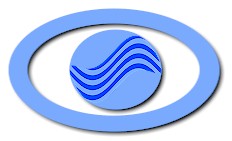
ReformIS

[ Berita (News) | Cari (Search) | Menu Utama (Main Menu) | Hantar Berita (Submit News) ]
![]()
From: NST
Date: 07 May 1999
Time: 06:09:56
KUALA LUMPUR, Tues. - Media organisations should publish articles which they think are worth publishing and should not be held back by various factors, a prominent former Supreme Court judge said today.
"Publish and be damned," Prof Tan Sri Harun Hashim said during a panel discussion on "Focusing on Unpunished Crimes Against Journalists" organised by the Asian Institute for Development Communication in conjunction with World Press Freedom Day.
Harun said Malaysians were often too polite and went overboard with self-censorship.
He said, however, if articles broke the law, the media organisation would then have to pay for that consequence. While acknowledging that defamation cases against media organisations seem to be on the rise, he said:
"As for people claiming RM100 million or RM200 million in damages, let me assure you they will not get it. They could even buy the whole newspaper organisation with less."
Harun, dean of the Kulliyah of Law in the International Islamic University, was a panel member together with Berita Harian group editor Ahmad Rejal Arbee, Sun Media Corporation chief executive officer Hng Hung Yong and Bangkok Post editor Pichai Chuensuksawadi.
The moderator was former Malaysian permanent representative to the United Nations Tan Sri Razali Ismail.
Harun said bureaucrats had greater tendencies to control the Press, thinking that it was what their political master wanted.
"Politicians themselves are more liberal," he said.
On the level of Press freedom in Malaysia, National Press Club president Zainon Ahmad said it could be seen in terms of four factors.
"Firstly, we have the issue of ownership of the media organisation.Secondly, there are 13 pieces of legislation which concern the Press," he said.
Thirdly, he said, the fact that the Malaysian Press often received advice from everyone from low level officials to the Prime Minister on how it should be run was also a form of limitation.
"Finally, litigation against media organisations acts as another limit to Press freedom."
Zainon said he was happy Deputy Prime Minister Datuk Seri Abdullah Ahmad Badawi appreciated the fact that journalists were working for greater Press freedom.
"Maybe next year, we can celebrate World Press Freedom Day by looking at how much we have progressed.
"We may have 12 laws instead of today's 13, or maybe a new law banning political parties from owning shares in media organisations," he said.
The responsibility of the Press was also discussed. Pichai defined responsibility as being fair and giving coverage to all views.
"It should ultimately be accountable to the people. It should serve the people first."
He said he did not believe the Government had the right to interfere in the running of a newspaper.
Pichai said although the Press in Thailand could be considered free, it nevertheless had not done its job well and failed to focus on important issues.
Hng said media responsibility should come in the form of the Press playing a mediating role for the various views within a democracy.
Ahmad Rejal said most media organisations today were also commercial ventures and if the public had no confidence in its news or the media was not responsible to the public, then it would ultimately shut down.
![]()